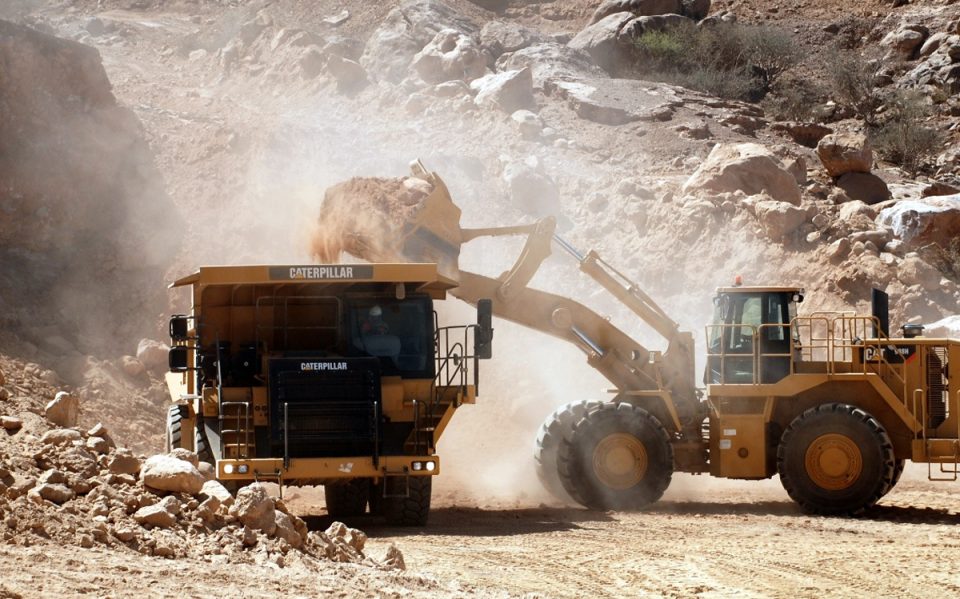As Nigeria focuses more on the Solid Minerals sector for economic growth and diversification, the need to ensure that all protocols guiding the exploitation of the natural resources are observed is paramount.
Experts warned that pursuing economic growth through the minerals sector without paying adequate attention to the environment is most likely to become unsustainable.
Studies indicate that mining is one of the most perilous occupations in the world in terms of injuries and fatalities and the long-term health effects associated with it.
An Associate Professor, Nazil Hossain, and a Research Scientist Epidemiologist, Elizabeth Westerlund Triche, in a joint study, linked failed pregnancy in mining communities to exposure to heavy metals such as lead and mercury.
Against this backdrop, bitumen host communities in Irele Local Government of Ondo State, have kicked against the exploitation of the natural resources found in their domain by South-West Bitumen Nigeria Limited (SBNL).
The host communities, under the aegis of Irele Progressive Union (IPU), insisted that all protocols guiding bitumen exploitation must be observed, while the company must strictly observe the rights of host communities before they would be allowed to commence operation.
The IPU President, Dr. Olagoke Akinwumi, disclosed that the council hosts over 21.37 billion barrels of the total 42.74 billion barrels spread across the host communities and councils, namely Ese-Odo and Okitipupa.
Akinwumi noted that the recent mobilisation of equipment to the site at Lamudifa community necessitated the urgent protest by the people to stop the commencement of bitumen exploitation in the state.
He, alongside other community leaders, faulted SBNL for commencing exploitation without any Memorandum of Understanding (MoU), and failure to address the issues raised in the Environmental Impact Assessment (EIA) carried out.
Section 116 of the Mining Act, 2007, states: “Subject to the provisions of this section, the holder of a Mining Lease, Small Scale Mining Lease, or Quarry Lease, shall prior to the commencement of any development activity within the lease area, conclude with the host community where the operations are to be conducted, an agreement referred to as a community development agreement or other such agreement that will ensure the transfer of social and economic benefits to the community.”
Speaking on, “Environmental Protection in the Solid Mineral Development,” Executive Director, Neighbourhood Environment Watch, Dr. Okezie Kelechukwu, in a webinar organised by Global Rights, charged all hands to be on deck to address the environmental degradation resulting from artisanal mining.
He noted that those who destroyed their environment never lived to tell the stories, adding that the country is setting a new agenda for the future environmental holocaust.
“Such is the case of the Sahara Desert landscape, and lost civilisations such as the Great Zimbabwe civilization, which flourished between the 11th and 15th centuries, now lost in the archaeological debris.
“Our efforts should be mutually reinforcing and directed at securing a sustainable environment. Therefore, we must regularise artisanal miners and integrate them into aspects of the mining economy. Nigeria must enact laws specific to artisanal mining to regulate their operations and enforce strict compliance to Environmental Impact Assessment (EIA) and audits.”
He noted that EIA should be inclusive, taking into cognisance gender dynamics and vulnerabilities, adding that advocacy and strengthening the voices of host communities to speak out when mining pollutes their environment must be ensured.
“They must ensure the closure of all mine sites on the polluter pays principle, and leave the environment better than before, and empower the communities to weigh the environmental aspect of mining against the environmental benefits and ability to resist any form of mining.
“Strengthen all institutions of government with oversight to the environment and sanction laxity on the part of the staff. Report all issues of environmental degradation to the relevant government agencies and civil society organisations such as Global Rights, and use social media to draw attention to environmental degradation.”
Kelechukwu stated, “We all owe it as a duty to the present and future generations to protect our environment. We must weigh the choices we make today against the benefits of the future environment we keep in custody for future generations.”
The General Secretary, Nigerian Mining and Geoscience Society (NMGS), Dr. Akinade Olatunji, told The Guardian that a lot of things are misunderstood about the environmental impact of mining activities.
He noted that there is no development that does not impact the environment. “As urbanisation impacts, the environment so does mining activities, even farming or agriculture in general impacts the environment. What those of us in the field usually preach is sustainability. That is, the danger posed by such activities as mining must be so minimised to such a level that the resilience of the environment could bear.”
He added that the EIA is not followed by miners because of the corruption inherent in the entire facet of national life.
“All EIAs require the active participation of the community. The communities are expected to participate in all the dialogue and action plans from the beginning to the end. We cannot reinvent the wheel; the laws are very clear and comprehensive! All that is needed is rigorous implementation.”
Also, a Fellow of Accountability Lab Nigeria, John Oluwafemi, urged the Federal Government to grant states the power to oversee licensed miners protect the people living in the communities where these mining activities are taking place.
He said this after the Act Hub Africa rolled out a survey prototyping the Social and Environmental Impact Assessment Audit, being incubated at Accountability Lab Nigeria.
The Survey, titled: “Understanding the awareness level of the citizens: pivotal for environmental accountability,” advocates to forge a direction towards ensuring EIA compliance in Nigeria.
He noted that the country is confronted with environmental challenges that require strategic investigation and better integration among the health, ecologic, economic, and social sciences.




